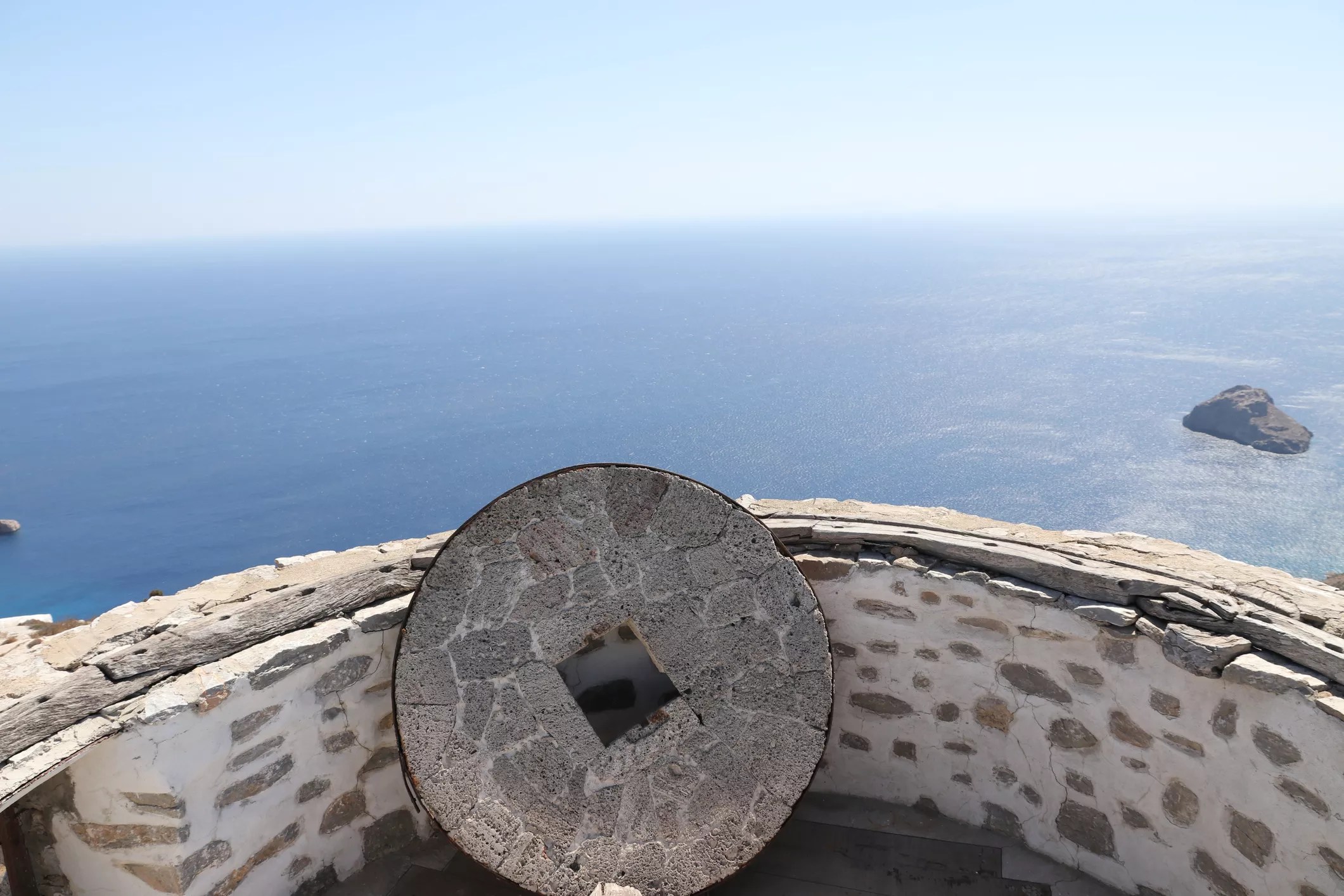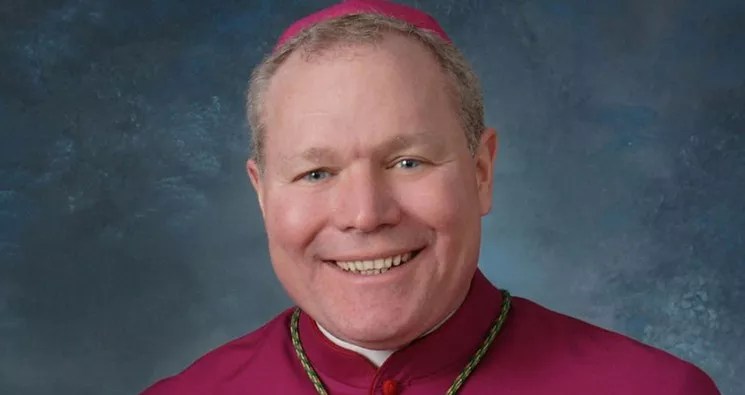
iStock

Audio By Carbonatix
I’m from Dallas. I was late to see the 2015 movie Spotlight, about a sex scandal involving the Roman Catholic Archdiocese of Boston. I saw it last January in a suburban theater in the San Francisco Bay Area with my sister and brother-in-law, who are from Chicago.
For me, it was about newspapers, focused on a 2001 investigative series by The Boston Globe. For my relatives, it was about Catholics. We are, in sum, a family of agnostics and believers-lite, some of whom are also newspaper people. Taken together, we own very little right to pass judgment on Catholics, but, you know. We do. And we welcome them to pass judgment on us.
But then I had this other important perspective on the movie. The combination of being from Dallas and being a newspaper person caused me to feel there was a fundamental anomaly at work all through the Spotlight saga, an error in the critical discussion of the film, in the screenplay itself and maybe even in the stories in the Globe that the movie was about originally.
“I recognize this diocese cannot cover its ears, its eyes, its mouth. We need to look at this head on.”— Bishop Edward J. Burns
We’re thankful for you. Are you thankful for us?
We feel thankful for our staff and for the privilege of fulfilling our mission to be an unparalleled source of information and insight in Dallas. We’re aiming to raise $30,000 by December 31, so we can continue covering what matters most to this community.
Help us continue giving back to Dallas.
It’s something we call “story sense” in the newspaper business, a kind of system or maybe more of an instinct that allows us to estimate how “big” a story is, meaning how significant, which really means how many people will want to read it. Part and only part of what makes something a really big story is that it’s about something that has a powerful impact, good or bad, on a very large universe of people. But the other necessary ingredient, in order for it to be news, is that it’s new. People don’t already know about it.
You don’t have a front-page blockbuster with huge type above the fold if the headline is “Oxygen Necessary for Life.” Oxygen is huge, but everybody knows that already. It’s only news if the headline is “Scientists Say Earth to Run Out of Oxygen Next Month.” Now you have readers.
According to what I mean by story sense, the whole treatment of the Boston Archdiocese cover-up – in the Globe in 2001, in the 2015 screenplay and in critical reaction to the movie – was that something new was being discovered. In fact, the telling of that story was wide-eyed and slack-jawed, as if the deliberate, organized hiding and protection of sexual predators by Roman Catholic hierarchy was not just news but shocking.
I was a reporter for the Houston Chronicle in Dallas in 1997 when the story broke of an international conspiracy within the Roman Catholic hierarchy to hide and protect sexual predators among the clergy. After a gut-wrenching 11-week trial, when a Dallas jury awarded damages of $119 million against the Roman Catholic Diocese of Dallas, the story was at the top of international news for days. Bill Ryan, a spokesman for the National Conference of Catholic Bishops in Washington, told reporters, “This is by far and away the biggest judgment we have ever heard of.”
I don’t get excited much at press conferences, but I literally shivered when I heard plaintiffs’ attorney Windle Turley say the defense had uncovered massive incontrovertible evidence of a global conspiracy going back centuries. The story of that trial was far more than a local scandal. It was the searing indictment of an entire religion.
I did say above I am aware how limited my prerogatives are in some ways when it comes to criticizing somebody else’s religion, anybody else’s religion. And of course I am aware that since 1997 the issue of sexual predation has metastasized broadly and generally across the entire spectrum of all religions and I assume one day will catch up with the agnostics, as well.

The church needs to ask itself whether it is itself an engine of evil.
Franz Stuck, 1863-1928,
It seems to be a human problem, not a secular one. But that doesn’t mean the specific instances are not newsworthy or that it isn’t important for us to see how it works out in different idiosyncratic contexts. (By the way, sorry, but I have to inject a pet peeve here. Will someone please teach newscasters how to pronounce the word, diocese? It’s dio-sis in the singular, dio-seez in the plural. Sheesh.)
What is very peculiar for me in the Roman Catholic story – to the point of weirdness, frankly – is the story sense problem. The global Roman Catholic conspiracy to hide predators was still important in 2001 in Boston, four years after the Dallas verdict, because it was still ongoing. But like oxygen, it was not new.
All people had a right to be disgusted and angry in Boston, Catholics and others alike, when the Globe did a great job telling that story. But no one had a right to be shocked. That just doesn’t work. You shouldn’t be shocked when somebody tells you something you already know.
Now we must come all the way forward to the present and to the Pittsburgh story – 1,000 children molested over 70 years – and to an eerie postscript here, revealed in Dallas over last weekend by Bishop Edward J. Burns. Father Edmundo Paredes, former pastor of St. Cecilia Roman Catholic Church in Oak Cliff, is accused by Burns of sexual predation, the specific nature of which is still unknown.
Rudolph Bush reported in The Dallas Morning News that Burns told parishioners, “I need to come face to face with the frustration. I need to come face to face with this issue, with the anger, with the rage.
“I recognize this diocese cannot cover its ears, its eyes, its mouth. We need to look at this head on.”
Of course. But that was more than two decades ago. The diocese does not need to uncover its ears, its eyes and its mouth now. It needed to uncover them 21 years ago. And keep them uncovered. How did they get covered back up? How can human beings cover their eyes, ears and mouths to child sexual predation when it is right in front of them?
By the way, I’m not saying they can’t. We know they can. We know they do. In that sense, the predation is always known, sensed, suspected, felt, feared but denied. People whose duty is to protect may not do so if they are able to deny what their hearts tell them is true.
But forget hearts. The Dallas verdict was in the Houston Chronicle, the Los Angeles Times, Il Tiempo, Der Stern, The New York Times, Le Monde. It was everywhere.
And now, I’m sorry, please don’t think I’m trying to be flip or dismissive of this enormous harm against children, but the reaction to the Pittsburgh story – the shock, the righteous wrath, the professions of betrayal – none of that is even faintly believable. It’s horrifically absurd.
In fact, the better story is the profession of shock. What shock? The only thing that’s shocking is the fantastic inaction of the Catholic hierarchy. The church has proposed no fundamental change beyond the predictable litany of advisory commissions and reporting requirements, cheap moral parlor tricks that every bus company and pet food manufacturer puts in place after a bad public relations crisis. I’m sure there are crisis management consultants out there who have all that stuff in PowerPoint presentations, the last slide of which is a price list.

Bishop Edward J. Burns
Catholic Diocese of Dallas
Quite beyond institutional structure, what about the basic theological underpinning of the denomination? Or the whole religion? Serious questions about modern Christian belief have been raised by a number of compelling writers, including former Episcopal Bishop John Shelby Spong, author of A New Christianity for a New World: Why Traditional Faith Is Dying and How a New Faith Is Being Born.
Almost regardless of the answer, is that not the dimension of question that we ought to be raising? Isn’t that what the story should be about by now? What’s wrong with the religion?
And, sure, we know that the core faithful of any strong, organized system of belief may cling to it for comfort and assurance almost no matter what kind of damaging evidence may emerge, but that doesn’t work for the leadership. They know how things work, both in the book and behind the scenes.
“We Catholics need a new church culture and a remedial course in the virtues.” — Joshua J. Whitfield
Last weekend The Dallas Morning News op-ed page carried a commentary by a regular contributor, Joshua J. Whitfield, a Catholic priest, under the headline, “We Catholics need a new church culture and a remedial course in the virtues.” I read it. I looked back at that headline and thought, “How do you know you don’t need a new religion?”
I don’t think that’s over the top. Thousands of children, probably millions worldwide, are still being consistently and persistently sexually molested by an army of priests armored by religious authority. These priest-predators then are able to repair to a sanctuary of power and secrecy within the church, while the same church has provided no equivalent sanctuary for the child victims.
The question there is not church culture. It is whether the church itself and the belief it promulgates may be engines of evil. The church continues to fail to get anywhere near that question.
By ordinary newspaper story sense, two things here make the real story. The first is the church’s failure since the Dallas verdict to get anywhere near the heart of the real questions raised by the case. The second is the very strange insistence that each new instance since then has been a shock. Somewhere in the interplay of those two elements is the news.